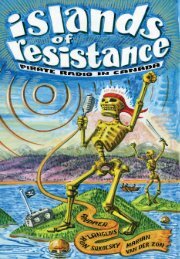9_1_1
9_1_1
9_1_1
You also want an ePaper? Increase the reach of your titles
YUMPU automatically turns print PDFs into web optimized ePapers that Google loves.
1989 BRUCE L. BENSON-PROPERTY RIGHTS IN PRIMITIVE SOCIETIES 7<br />
elected representatives, or the decision of a king or dictator) is required for a<br />
transfer when a government is involved. This argument is related to the coercionlpersuasion<br />
definition, of course, and it is not completely satisfactory for<br />
similar reasons. For example, we shall see that while voluntary contractual<br />
agreements provided the basis for some primitive legal systems (also for some<br />
medieval systems, such as those in Iceland3) and Ireland3*), kinship provided the<br />
basis for still others. People do not necessarily unanimously agree to be in or<br />
contribute to production by their families, however, and it is not clear that leaving<br />
a primitive kinship group was easily or safely (and clearly not costlessly)<br />
accomplished.<br />
Because the coercion and lack of unanimity definitions of government are not<br />
completely satisfactory, a definition of government is adopted here that emphasizes<br />
the institutions that perform the functions of law production and enforcementthat<br />
is, the institutions that legislate, execute, and adjudicate. In particular, government<br />
exists when these institutions are professionalized in such a way that (1)<br />
the primary source of income for some or all of the individuals who perform<br />
the legal functions is derived from those functions, and (2) some or all of the<br />
individuals involved in the production and enforcement of laws are "bureaucrats"<br />
in the sense that their coercive powers are directly derived through some system<br />
other than unanimous agreement of the parties affected by their actions (e.g.,<br />
by royal appointment or appointment by an executive who has either been<br />
nonunanimously elected or risen to authority through force). The institutional<br />
characteristics of modern nation-states and their monarchal predecessors thus imply<br />
the existence of g~vernment.~' This view of government implies that many of<br />
the characteristics of modern market economies evolved while government was<br />
e~olving.'~Simultaneous evolution does not imply that state government and its<br />
laws are necessary for the evolution of commercial law, however, and we shall<br />
see that they are not necessary for the establishment of private property and<br />
individual rights.)'<br />
111. Primary and Secondary Rules Among the Yurok Indians<br />
and Their Northern California Neighbors<br />
Walter Goldsmidt, after studying the Yurok, Hupa, and Karok Indians and some<br />
of their Northern California neighbors, reported ". . . a culture which reflects<br />
in surprising degree certain structural and ethical characteristics of emergent<br />
capitalistic Eur~pe.")~ In this Indian society, property was universally held in<br />
individual private ownership. Socially, these Indians were organized in households<br />
and villages. There were no class or other inalienable group affiliations, and no<br />
vested authoritarian position-that is no state-like government with coercive power.<br />
Private property rights were sharply defmed. Title considerations, for example,<br />
included (1) separation of title to different types of products; (2) ownership rights



